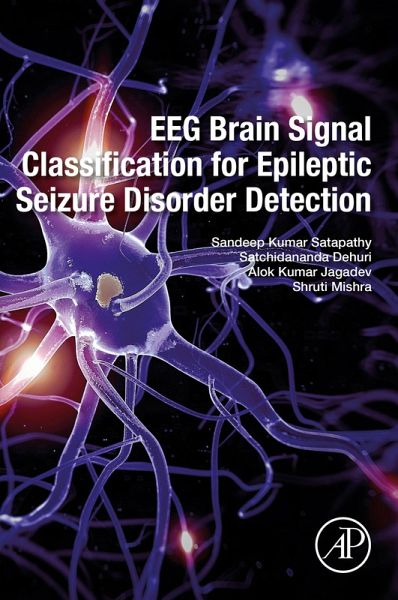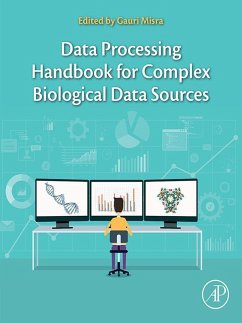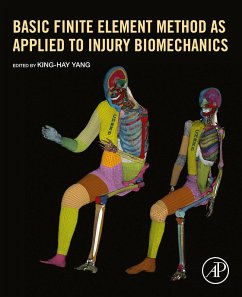
EEG Brain Signal Classification for Epileptic Seizure Disorder Detection (eBook, ePUB)
Versandkostenfrei!
Sofort per Download lieferbar
70,95 €
inkl. MwSt.
Weitere Ausgaben:

PAYBACK Punkte
35 °P sammeln!
EEG Brain Signal Classification for Epileptic Seizure Disorder Detection provides the knowledge necessary to classify EEG brain signals to detect epileptic seizures using machine learning techniques. Chapters present an overview of machine learning techniques and the tools available, discuss previous studies, present empirical studies on the performance of the NN and SVM classifiers, discuss RBF neural networks trained with an improved PSO algorithm for epilepsy identification, and cover ABC algorithm optimized RBFNN for classification of EEG signal. Final chapter present future developments i...
EEG Brain Signal Classification for Epileptic Seizure Disorder Detection provides the knowledge necessary to classify EEG brain signals to detect epileptic seizures using machine learning techniques. Chapters present an overview of machine learning techniques and the tools available, discuss previous studies, present empirical studies on the performance of the NN and SVM classifiers, discuss RBF neural networks trained with an improved PSO algorithm for epilepsy identification, and cover ABC algorithm optimized RBFNN for classification of EEG signal. Final chapter present future developments in the field. This book is a valuable source for bioinformaticians, medical doctors and other members of the biomedical field who need the most recent and promising automated techniques for EEG classification. - Explores machine learning techniques that have been modified and validated for the purpose of EEG signal classification using Discrete Wavelet Transform for the identification of epileptic seizures - Encompasses machine learning techniques, providing an easily understood resource for both non-specialized readers and biomedical researchers - Provides a number of experimental analyses, with their results discussed and appropriately validated
Dieser Download kann aus rechtlichen Gründen nur mit Rechnungsadresse in A, B, BG, CY, CZ, D, DK, EW, E, FIN, F, GR, HR, H, IRL, I, LT, L, LR, M, NL, PL, P, R, S, SLO, SK ausgeliefert werden.













